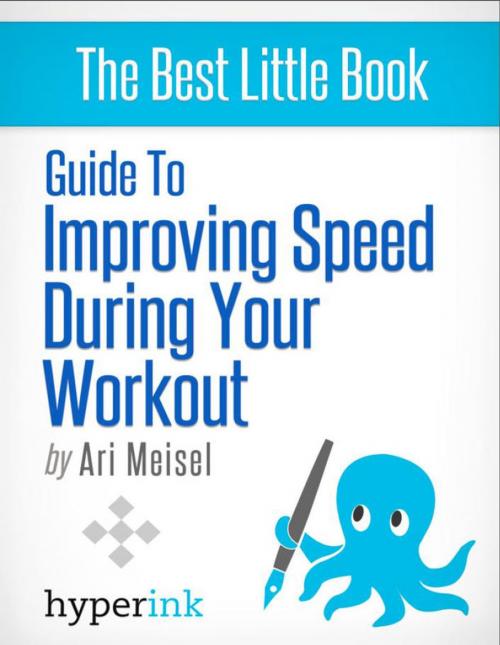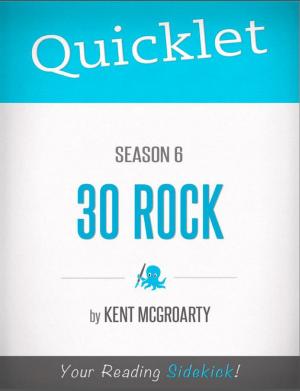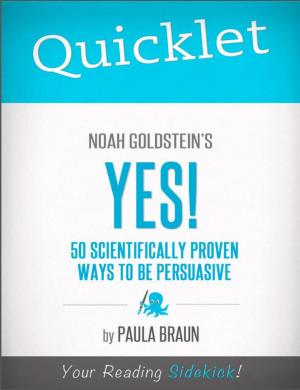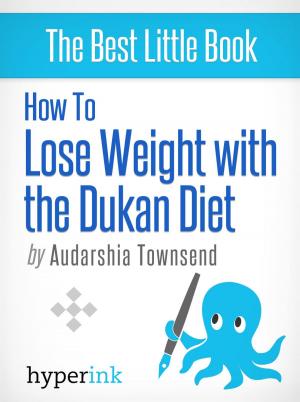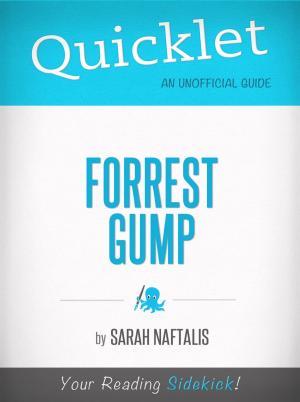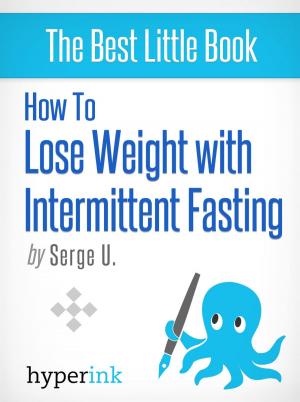Guide To Improving Speed During Your Workout
Nonfiction, Reference & Language, Reference, Guides & Handbooks| Author: | Ari Meisel | ISBN: | 9781614649434 |
| Publisher: | Hyperink | Publication: | February 24, 2012 |
| Imprint: | Hyperink | Language: | English |
| Author: | Ari Meisel |
| ISBN: | 9781614649434 |
| Publisher: | Hyperink |
| Publication: | February 24, 2012 |
| Imprint: | Hyperink |
| Language: | English |
ABOUT THE BOOK
If you are interested in increasing your speed then it is safe to assume that you are already working out or training for something, so congratulations to you. If you haven’t started on the path to wellness, then let this guide be an inspiration; I will show you how you can increase your speed through optimized efforts.
We are creatures of progress. We’ve evolved over eons by constantly striving to do better.
Progress begets progress by motivating us complete more milestones, reach our goals, and set our sights on bigger and better things. If your goal is to run a faster marathon, complete a triathlon before your legs give out, or cross the finish line of a Tough Mudder with people younger than you (rather than with people twice your age), you’ve come to the right place.
MEET THE AUTHOR
In 2006, Ari was diagnosed with Crohn's disease. Crohn's is an incurable disease of the digestive tract. Ari's case was severe, and required over a dozen daily medications and several hospital visits. After reaching a personal low point in hospital, Ari decided he would do everything in his power to strengthen his by then weak body. Through a combination of yoga, nutrition, natural supplements and rigorous exercise (Triathlon and Crossfit) he was able to fight back the symptoms of Crohn's until he was finally able to suspend his medication. Eventually Ari was declared free of all traces of the 'incurable' disease, and competed in Ironman France in June of 2011. Ari has since spoken at seminars and at a regional TED Talk about his struggle against a seemingly insurmountable opponent. Through the process of data collection, self tracking, and analysis, Ari helped develop Less Doing. This was a way of dealing with the daily stresses of life by optimizing, automating, and outsourcing all of his tasks in life and business. Now he focuses on Achievement Architecture, helping individuals be more effective at everything.
EXCERPT FROM THE BOOK
There are no hard rules when it comes to doing a Fartlek, but a great example is running. You can simply go out for a nice jog and every so often throw in an all-out sprint for a short period of time. If you are running in a city, jog for 5 blocks, then sprint for 1, and then return to a jogging pace.
This also applies to sports like hockey, where you are moving around waiting to attack the puck, and even race car driving where you get to “relax” on the straightaways and then you need to pool all of your resources to make sure you get through that hair pin turn unscathed. Fartleks offer a unique opportunity for your cardiovascular system to learn to recover during activity.
If your body gets tricked into thinking that 6 minute mile pace is rest simply because you aren’t sprinting at a 4 minute mile pace, you start to set the bar higher and higher and as soon as you come off that sprint, even though you are still moving, your heart rate and respiration rate will start to decline.
There’s also a fascinating evolutionary component to this kind of training. Researchers believe that Persistence Hunting was the first form of hunting accomplished by human beings. Before we had weapons, it was possible for humans to catch their prey through running and determination.
Buy a copy to keep reading!
ABOUT THE BOOK
If you are interested in increasing your speed then it is safe to assume that you are already working out or training for something, so congratulations to you. If you haven’t started on the path to wellness, then let this guide be an inspiration; I will show you how you can increase your speed through optimized efforts.
We are creatures of progress. We’ve evolved over eons by constantly striving to do better.
Progress begets progress by motivating us complete more milestones, reach our goals, and set our sights on bigger and better things. If your goal is to run a faster marathon, complete a triathlon before your legs give out, or cross the finish line of a Tough Mudder with people younger than you (rather than with people twice your age), you’ve come to the right place.
MEET THE AUTHOR
In 2006, Ari was diagnosed with Crohn's disease. Crohn's is an incurable disease of the digestive tract. Ari's case was severe, and required over a dozen daily medications and several hospital visits. After reaching a personal low point in hospital, Ari decided he would do everything in his power to strengthen his by then weak body. Through a combination of yoga, nutrition, natural supplements and rigorous exercise (Triathlon and Crossfit) he was able to fight back the symptoms of Crohn's until he was finally able to suspend his medication. Eventually Ari was declared free of all traces of the 'incurable' disease, and competed in Ironman France in June of 2011. Ari has since spoken at seminars and at a regional TED Talk about his struggle against a seemingly insurmountable opponent. Through the process of data collection, self tracking, and analysis, Ari helped develop Less Doing. This was a way of dealing with the daily stresses of life by optimizing, automating, and outsourcing all of his tasks in life and business. Now he focuses on Achievement Architecture, helping individuals be more effective at everything.
EXCERPT FROM THE BOOK
There are no hard rules when it comes to doing a Fartlek, but a great example is running. You can simply go out for a nice jog and every so often throw in an all-out sprint for a short period of time. If you are running in a city, jog for 5 blocks, then sprint for 1, and then return to a jogging pace.
This also applies to sports like hockey, where you are moving around waiting to attack the puck, and even race car driving where you get to “relax” on the straightaways and then you need to pool all of your resources to make sure you get through that hair pin turn unscathed. Fartleks offer a unique opportunity for your cardiovascular system to learn to recover during activity.
If your body gets tricked into thinking that 6 minute mile pace is rest simply because you aren’t sprinting at a 4 minute mile pace, you start to set the bar higher and higher and as soon as you come off that sprint, even though you are still moving, your heart rate and respiration rate will start to decline.
There’s also a fascinating evolutionary component to this kind of training. Researchers believe that Persistence Hunting was the first form of hunting accomplished by human beings. Before we had weapons, it was possible for humans to catch their prey through running and determination.
Buy a copy to keep reading!
